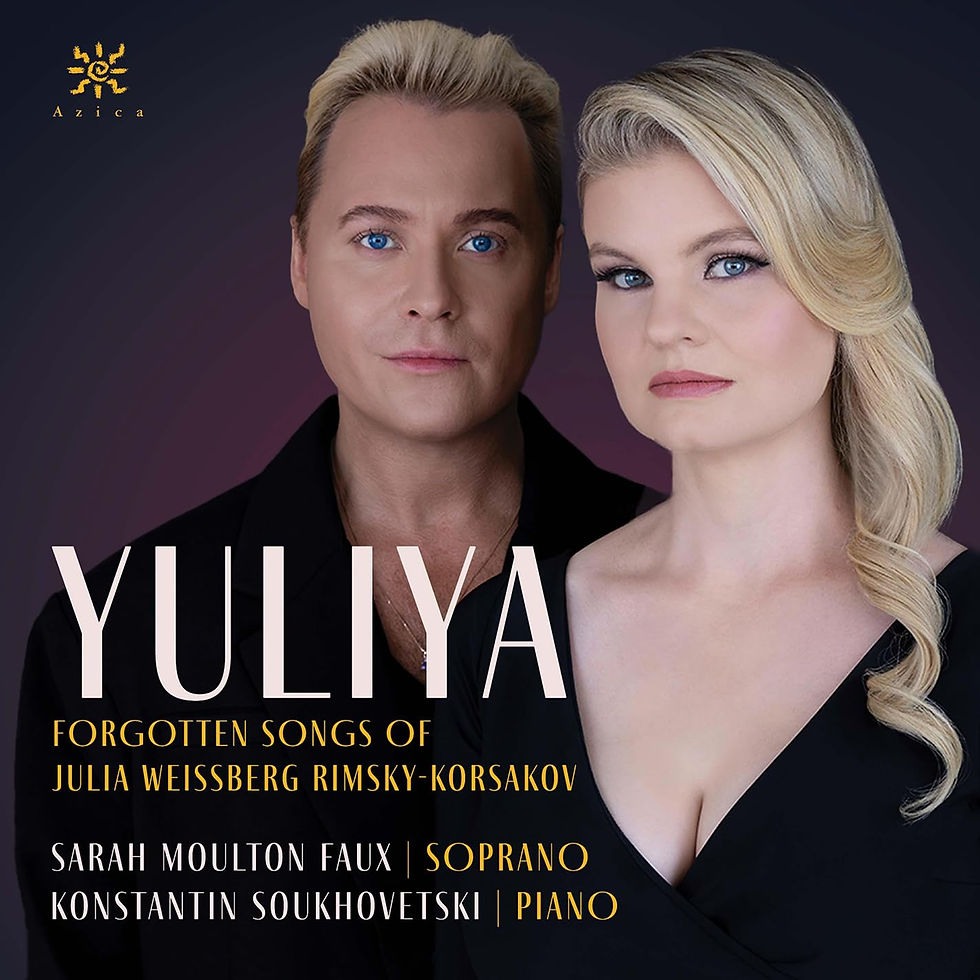Pianist Alon Goldstein – pursuit of one’s vision and voice never go out of style
- Jan 6, 2015
- 4 min read
Updated: Jun 11, 2020

“Musicians tend to say that music cannot be described in words. I believed it until I heard Fleisher speak. It was so clear, so eloquent, so rich, so incredibly precise…,”Goldstein says, describing Fleisher’s intention to teach his students how to teach themselves through his profoundly associative instructions. One of these descriptions stuck with him in particular: “During one of our lessons, while I was trying to find the focal point in the phrase, create long lines, generate momentum, and so forth, Fleisher leaned backward slowly in his chair, closed his eyes, gently raised his eyebrows, and said, ‘music is made out of physical forces. Every note, every ascending or descending line, circular pattern, or huge leaps is surrounded with physical forces. They are a magnet between the notes. This is what the music is made of. Understanding these physical forces, knowing how to utilize them, makes for an interpretation that is not only irresistible, but inevitable,’ ventured Fleisher.”
This irresistible musicality can be found in demonstration, recorded on his latest Grammy-nominated release of left-hand repertoire, All the Things You Are (Bridge, 2014).
“He had x-ray ears,” says Goldstein about Fleisher, “and because he made you analyze everything you do, this awareness allowed you to go straight to the heartbeat of the piece and challenge your music making to find its fundamental truth, time and again,” he reminiscences.
Even the most stirring lessons need fertile ground to instigate motivation. Goldstein inherited the tradition bestowed upon him with deep gratitude, continuing an inspired, lifelong dialogue with music vigorously articulated in his own teaching and his international career as concert pianist, and on occasion in his writing and concert talks.
In 1997, Goldstein moved on to Great Britain’s Guildhall Music School as a performance fellow, where he became a proponent of four-hand piano performances, and helped create a chamber music festival. His pianistic talent and creative performance concepts led to his receipt of an invitation to be artist-in-residence from the Theo Lieven International Piano Foundation at Lake Como. During two seasons, Goldstein was privileged to partake in private master classes with world-renowned musicians.
Shared Israeli roots and summers spent at the Marlboro and Vermont Music Festivals brought about collaboration with stellar cellist Amit Peled and clarinetist Alex Fiterstein. The resulting Goldstein-Peled-Fiterstein Trio was praised on many occasions for its members’ ability to precisely balance their original artistry as soloists with their great sensitivity and communicative skills as chamber players.
Photo Credit: Britt Olsen-Ecker

Together with violinist Ilya Kahler, Goldstein and Peled also formed The Tempest Trio, whose virtuosic performances have already been compared to the legendary Million Dollar Trio comprised of Arthur Rubinstein, Gregor Piatigorsky, and Jascha Heifetz.
The Tempest Trio’s European Tour, 2012.

Goldstein’s musical integrity and amicable personality has translated into scores of alliances and engagements as recitalist and soloist with orchestra, and a multitude of chamber music appearances, including numerous invitations to perform and teach at some of the most highly regarded music festivals, including the Verbier and Ravinia Festival. A recipient of various scholarships and prizes, including a ten-year scholarship from the America-Israel Cultural Foundation, Goldstein has always believed in paying it forward. His loyalty in supporting music by young Israeli composers, which resulted in a commission and performances of Avner Dorman’s concerto Lost Souls, is as much an integral part of that pledge as his community outreach efforts, through which he aims at “giving everyone the chance to be transported by the beauty and power of classical music,” inside and outside of the concert hall. At the same time, some of the formative moments of Goldstein’s past remain a substantial source of reverence, and have become an integral part of his personal musical voice: “Not long ago,” he writes, “in the midst of rehearsing of Mozart’s concerto for two pianos… at my alma mater, the Peabody Conservatory of Music, in preparation for a performance with the Chicago Symphony Orchestra later that summer, Fleisher entered the room unexpectedly,” which marked a welcome opportunity for Goldstein to be transported by the master’s presence and to experience. He says, “…how these physical forces slowly awakened – Centrifugal force pushed us outwards when an ascending melodic run changed its direction. Centripetal force pulled us inwards when a descending line suddenly turned upwards. Circular patterns, angular ones, leaps, jumps, sustain notes- all generated forces that glued the notes to become a musical phrase.”

Maestro Leon Fleisher with Alon Goldstein
“There was one force, though, that existed from the moment the first note of the piece was pressed until the last note disappeared. That was the force of gravity. As the melody soared high above, then dived back down almost touching the ground, making loops and leaps, taking us on a rollercoaster journey, it was a journey in anti-gravity…and Fleisher commented, ‘Listen to the way the long notes make a crescendo after being pressed, followed by a diminuendo before the next note arrives…Every physicist would say this is impossible, but we musicians are not physicist, we are illusionists. This is vocal playing.’”
For more information about Alon Goldstein’s diverse concert activities and CD releases, visit http://www.alongoldstein.com/. His blog can be found at http://blog.alongoldstein.com/.



Comments